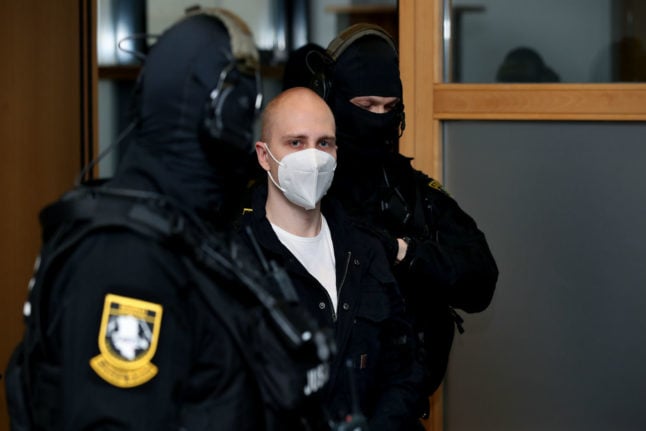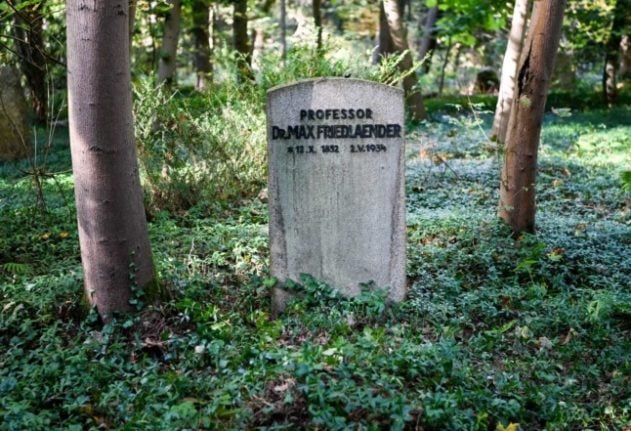Stephan Balliet, 28, is accused of trying to storm a synagogue filled with worshippers in Halle on October 9, 2019 during Yom Kippur, the holiest day in the Jewish calendar.
After failing to break down the door, he is said to have shot dead a female passer-by and a man at a kebab shop instead.
Balliet told the court in nearby Magdeburg that the proceedings against him were a “show trial” and denied the Holocaust, drawing shouts of protest from the co-plaintiffs on the benches.
Judge Ursula Mertens interrupted the speech and reminded him that denying the Holocaust is a criminal offence in Germany.
READ ALSO: What we know about the synagogue shooting in Halle
Balliet had previously denied the Holocaust during his trial, spouted racist and misogynist conspiracy theories and insisted that “attacking the synagogue was not a mistake, they are my enemies”.
Defence lawyer Hans-Dieter Weber said on Wednesday that Balliet's life in the run-up to the attack had been “characterised by constantly increasing social isolation”.
Weber disputed a psychiatrist's claim that Balliet could be held fully responsible despite a complex personality disorder, pointing to the defendant's increasing inability to interact with other people.
In his own closing statement three weeks ago, prosecutor Kai Lohse called for life in jail for Balliet and described the attack as “one of the most repulsive anti-Semitic acts since World War II”.
Lohse said Balliet had acted on the basis of a “racist, xenophobic and anti-Semitic ideology” to carry out an attack against not only those he killed but “Jewish life in Germany as a whole”.
The events that unfolded were like a “nightmare”, he added.
“At the end of this nightmare, the perpetrator murdered two people and injured and traumatised numerous others.”
Balliet has been charged with two counts of murder and multiple counts of attempted murder in a case that has deeply rattled the country and fuelled alarm about rising right-wing extremism and anti-Jewish violence, 75 years after the end of the Nazi era.
The court is expected to hand down its verdict on December 21st.



 Please whitelist us to continue reading.
Please whitelist us to continue reading.
Member comments